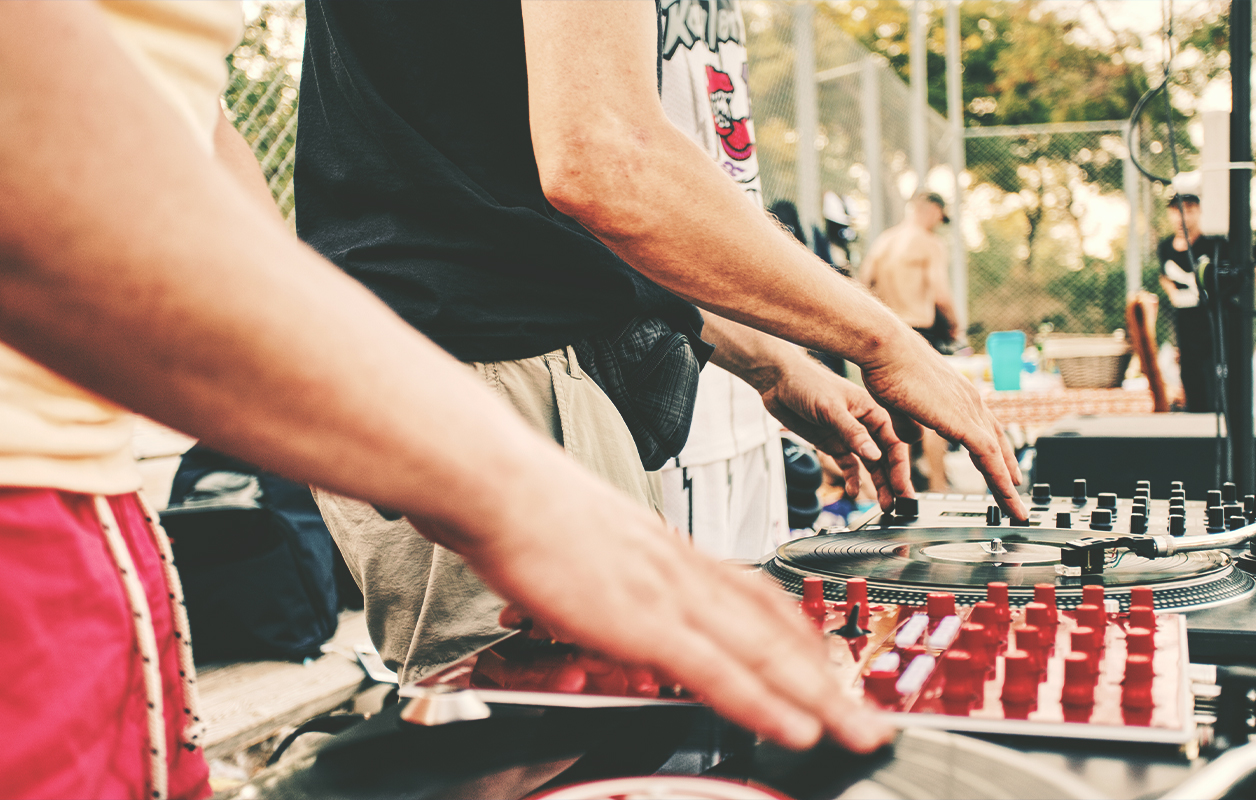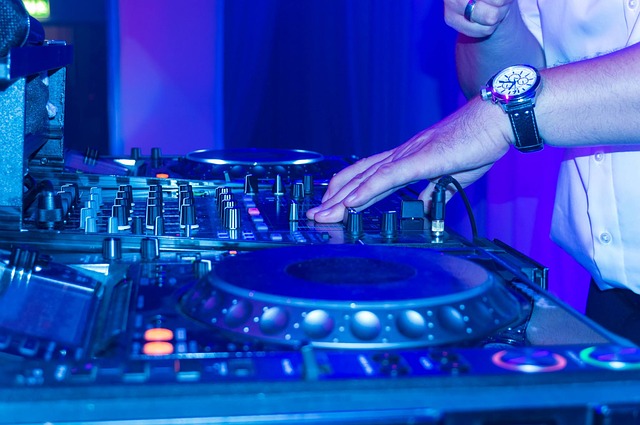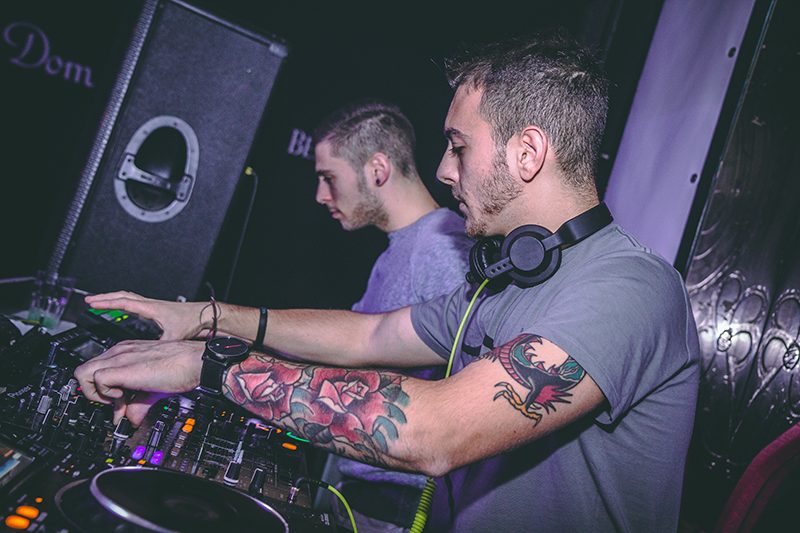
DJ etiquette is an intuitive process that depends on the individual DJ and varying situations. You are free to DJ however you want, but certain “rules” will more likely get you the money, stability, and audiences you seek. If you want to build a good reputation and create stable, high-paying clients, it’s important to pay attention to your etiquette.
Here are some best practices that will allow you to build an excellent reputation, have successful gigs, and maintain plenty of satisfied clients.
DO’S
Do: Start playing music at the time you committed to. Don’t underestimate the time it takes to set up your equipment. Arrive extra early to assemble and sound check your setup to ensure the music starts on time.
Do: Play until the end of the time you committed to. Don’t start cleaning up early – even if the venue isn’t crowded. If you have an arrangement for potential overtime pay, when your time is up, ask the client if they want you to continue playing. Be sure to ask. Don’t just keep playing and then charge the client overtime. This might come as a shock to them and possibly discourage them from hiring you again.
Do: Ask the client in advance what kind of music you should play. This will give you time to prepare a solid library of songs and provide direction for your song selection. Also, ask them whether they want you to play clean versions of songs or if explicit versions are okay.

Do: Research and download what’s currently trending. Don’t just pull from the same library you used five years ago. You can find out what’s trending from sources like the Billboard 100 and BPM Supreme’s charts and playlists.
Do: Pay attention to how a crowd is responding to a song. If they are dancing, keep playing the song. If they are leaving the dance floor, switch to something different. Don’t just play what you want to hear.
Do: Pay attention to both your DJing and the crowd during your gig. Look engaged. Don’t spend too much time on your phone or talking to your friends.
Do: Speak politely and respectfully to every single person, even if they are being rude or annoying you. Pro tip, this is much easier to do when you’re sober.
Do: Handle requests with care. Don’t scoff at anyone’s music taste. Don’t promise to play a song if you have no intention of playing it. One great way of handling requests is to say, “I’ll see if I can work it into the mix.” Then you can choose to play the song later if it feels right. If you don’t take requests, you can politely say, “I’m not taking requests at the moment.”
Do: Have easy access to songs that are requested. This means having a large library of music across multiple genres with cues in place. Learn more about organizing your music library here.
Do: Dress well. Wear stylish clothing that doesn’t look torn or have stains. Unless the gig calls for something different, don’t show too much skin. If the gig is a wedding or important event, wear formal attire that matches what the guests would wear.
Do: Thank the client. Always speak respectfully to the client even when they don’t speak respectfully to you.
Do: Stand your ground when negotiating a price for your DJ services. If a client is quoting prices well below your range, don’t respond with something like, “Are you kidding?” Instead, remind them that due to your experience level and the work/investment required, you need to charge more.
Do: Pack up your equipment by the time the next DJ arrives so they can start their set as scheduled.

Do: Respect a manager or event planner’s requests. If the manager asks for songs by very famous artists or asks you to turn down the volume, you should do so.
Do: Handle errors gracefully. If you accidentally switch to a new song or drop a strange effect, don’t call attention to your mistake. Instead, fix your mistake, keep going, and resume the good music.
DON’TS
Don’t: Scratch too much over a song. Unless you are performing at a scratch competition, customers want to hear music, not scratches. Scratch tastefully, such as when transitioning between two songs, or for a few seconds to add a unique spin on a song.
Don’t: Play the music so loud people can’t hear their own conversations.
Don’t: Focus a paid set around original or underground music unless the client asks for it. Being a DJ is a very creative and self-expressive process, but when someone is paying you to entertain their crowd with music, they typically are looking for a specific sound or set of songs. It’s best to discuss in advance what the client wants, but frequently, they will say something general like “open-format” or “radio-friendly.” Often, this means playing what is popular and familiar.
That said, within the realm of popular and charting music, you can go with your tastes, gut, and original song selection. Depending on the situation, perhaps you can slip a more obscure or original track at off-peak times. There are other times and places for more original material, such as online or at your own parties, or if a client asks for it.
Don’t: Comment on anyone’s appearance or behavior while emceeing or while in the booth.
Don’t: Drink excessively or do drugs while DJing. It won’t necessarily loosen up your performance; instead, it will make you sloppy. Additionally, you may lose respect from the client or venue manager or do something you’d regret.
Don’t: Repeat a song twice within an hour.
Don’t: Play long instrumental songs or sections unless the gig is an EDM gig or other type of gig that specifically calls for it.
Don’t: Play all the hits and most popular songs at the beginning of the set. If you are an opening DJ, don’t play all the hits and most popular songs because it will leave the headlining DJ with fewer songs to work with.

Don’t: Accept bribes to play certain songs. Word can get around, and you may lose credibility as a DJ.
Don’t: Abuse a venue’s DJ gear.
Don’t: Disrespect or yell at anyone hired to help you with your gear. DJ gigs can be high-pressure, but the people helping you are not machines.
Don’t: Undercut whichever agency or entertainment company placed you on the gig. If you are doing an agency gig, don’t pass out your personal business card to customers if they ask. Refer them to the agency.
These rules might seem limiting, but following them will serve you better in building a career that ultimately allows you to be yourself and DJ the way you want. Etiquette is especially important when starting out and building a brand and reputation. When you have a more established fan base and client relationships, you can take more risks and be more flexible with the “DJ rules.”
However, no matter how you choose to DJ and how famous you get, always maintain a sense of kindness, respect, and courtesy for everyone you encounter.

